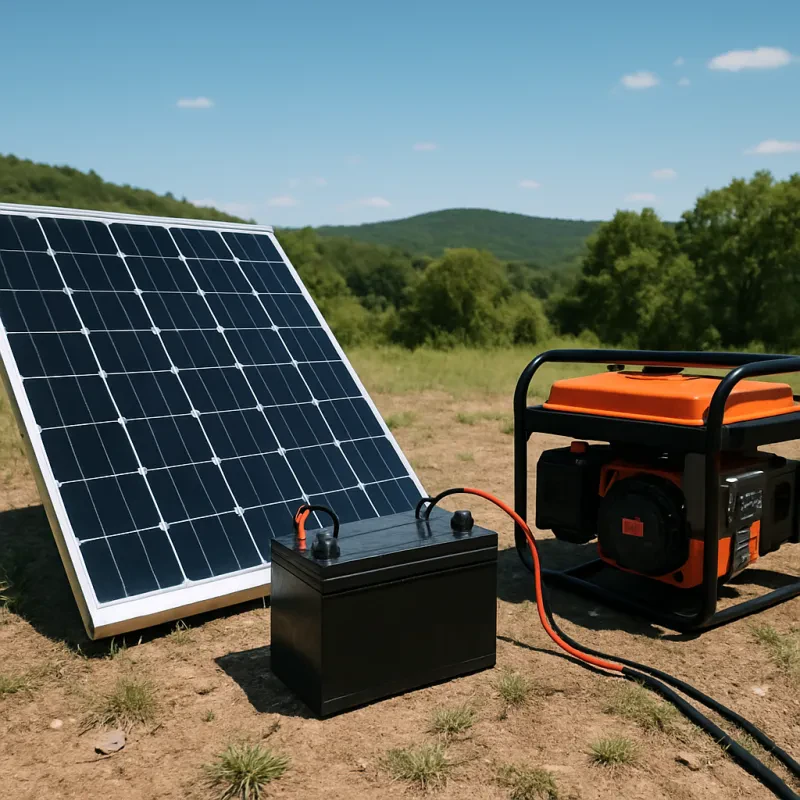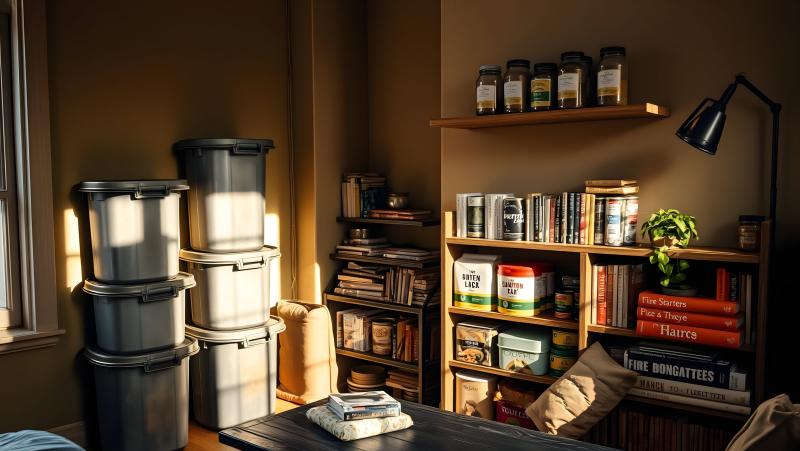Prepping, short for "emergency preparedness," refers to the practice of preparing for potential disasters or emergencies. Being ready and equipped to face a crisis is crucial in safeguarding the welfare of yourself and your dear ones, whether it's a calamity of nature, financial breakdown, or a global outbreak. Adequate preparation can be the deciding factor in mitigating the impact of an emergency and securing your family's safety.. In this article, we will delve into the fundamentals of prepping, outlining the essential elements that you must take into account when embarking on your preparedness journey.
Importance of Prepping
In today's uncertain world, it's essential to be ready for anything. Prepping allows you to be self-sufficient and better equipped to face potential disasters, ensuring you have the necessary resources and skills to protect yourself and your family.
The Five Core Elements of Prepping
When beginning your prepping journey, there are five core elements to consider: water, food, shelter, security, and medical supplies. Each of these elements is crucial to your overall preparedness and survival.
Water
Water is the most critical resource for survival. A person can survive only a few days without water, making it essential to have a reliable source of clean, potable water in an emergency.
How to store and purify water
Storing water involves having a supply of clean water on hand, as well as the ability to collect and purify water from various sources. Store water in food-grade containers and replace it every six months. Additionally, learn different water purification methods, such as boiling, using purification tablets, or investing in a high-quality water filter.
Food
Food is another essential resource for survival. In an emergency, access to grocery stores may be limited or nonexistent, so it's crucial to have a stockpile of food that can sustain you and your family.
Long-term food storage
When building your food supply, focus on non-perishable items with long shelf lives, such as canned goods, dried foods, and freeze-dried meals. Rotate your stockpile regularly to ensure freshness and avoid waste.
Shelter
In an emergency, having a safe and secure shelter is critical for protection from the elements, as well as potential threats.
Choosing a safe location
Evaluate your current living situation and determine if it's suitable for sheltering in place during an emergency. If not, identify a safe location where you can retreat if needed. This may be a designated safe room in your home or a separate bug-out location.
Security
Ensuring your personal safety and the security of your shelter is crucial during an emergency.
Home defense and personal safety
Develop a home defense plan that includes reinforcing entry points, installing security systems, and having appropriate tools and weapons for self-defense. Additionally, practice situational awareness and learn self-defense techniques to protect yourself and your family.
Medical and First Aid Supplies
In an emergency, access to medical care may be limited. It's essential to have a well-stocked first aid kit and knowledge of basic first aid procedures.
Building a comprehensive first aid kit
Your first aid kit should include items such as bandages, gauze, adhesive tape, antiseptic wipes, pain relievers, and essential medications. Regularly check the contents of your kit and replace expired items as needed.
Preparing for Various Emergencies
While the core elements of prepping remain the same, it's essential to adapt your preparations to different types of emergencies, such as natural disasters, economic collapse, or pandemics.
Natural Disasters
When preparing for natural disasters, research the specific threats in your region, such as hurricanes, earthquakes, or floods. Develop a disaster plan that includes evacuation routes, emergency contacts, and supplies tailored to the specific disaster.
Economic Collapse
To prepare for an economic collapse, consider diversifying your assets, reducing debt, and building an emergency fund. Focus on self-sufficiency by growing your own food, learning practical skills, and developing alternative sources of income.
Pandemics
During a pandemic, personal hygiene and sanitation become critical. Stock up on items such as hand sanitizer, soap, and disinfectants. Stay informed about the specific disease and follow guidelines from health organizations to protect yourself and your family.
Developing a Prepping Mindset
A crucial aspect of prepping is developing the right mindset. This includes staying informed, being adaptable, and constantly learning.
Skills and Knowledge
Learning essential survival skills
Invest time in learning essential survival skills, such as first aid, navigation, fire starting, and food procurement. These skills can prove invaluable during an emergency and increase your chances of survival.
Conclusion
Prepping is about taking responsibility for your own safety and well-being during an emergency. By focusing on the core elements of prepping and adapting your preparations to different types of emergencies, you'll be better equipped to face whatever challenges may come your way. Remember, the key to successful prepping is constant learning, adaptability, and developing the right mindset.
FAQs
How do I start prepping?
- Begin by focusing on the five core elements of prepping: water, food, shelter, security, and medical supplies. Develop a plan based on your specific needs and circumstances, and start building your stockpile of resources.
How much water and food should I store?
- A general guideline is to store at least one gallon of water per person per day and a three-day supply of non-perishable food. However, it's a good idea to have a more extended supply depending on your specific situation.
What other items should I have in my emergency supplies?
- In addition to water, food, and medical supplies, consider including items such as flashlights, batteries, a weather radio, multi-tool, fire starters, and hygiene supplies.
What skills should I learn for emergency preparedness?
- Focus on essential survival skills, such as first aid, navigation, fire starting, and food procurement. Additionally, learn practical skills such as gardening, cooking, and basic home repairs.
How do I prepare for specific types of emergencies?
- Research the potential threats in your area and develop a plan that addresses the unique challenges of each emergency. Stay informed and adapt your preparations as needed.


